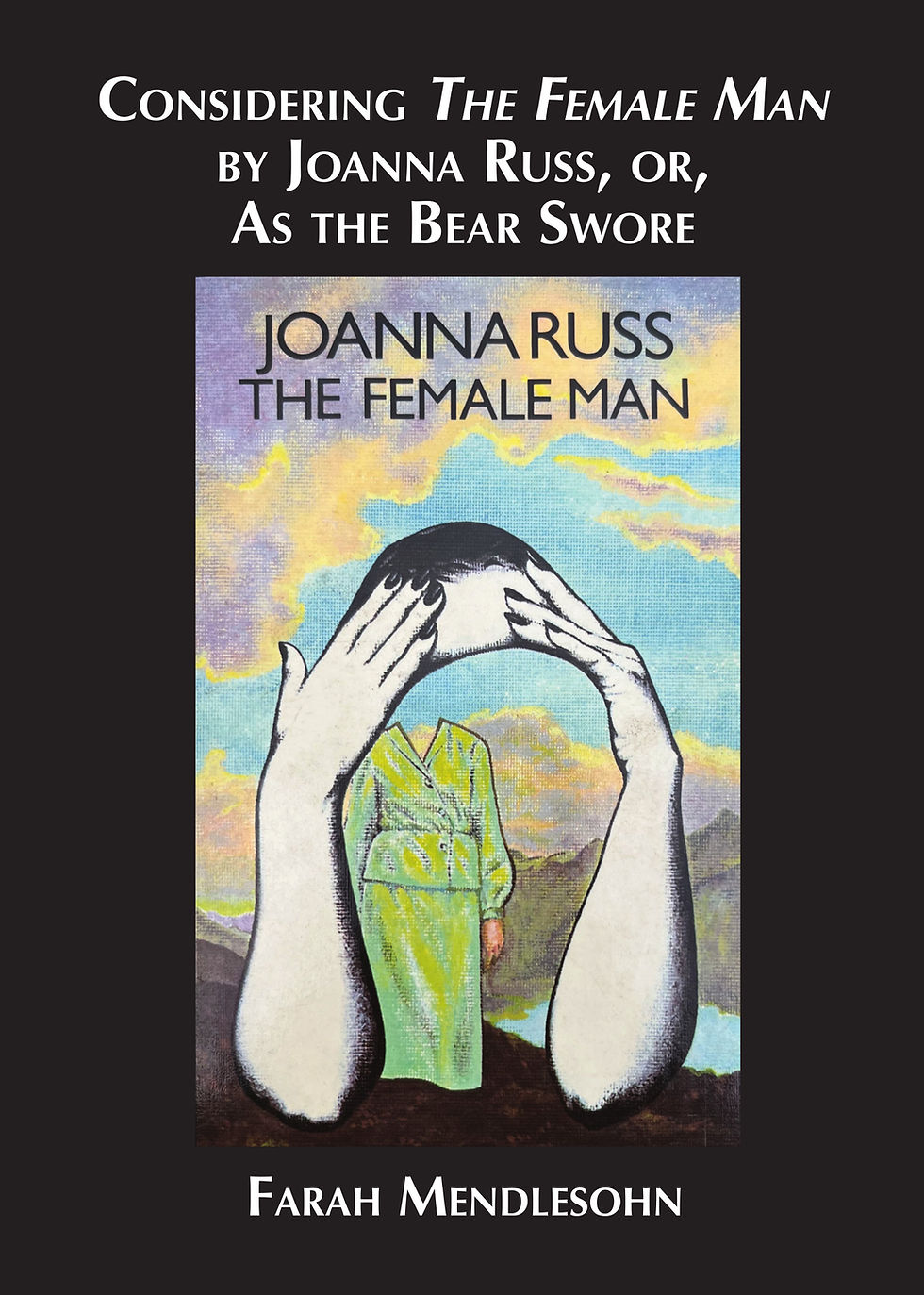Pooja M Biswas Joins the Luna Family!
- Mar 15, 2020
- 4 min read
Updated: Oct 21, 2020

We are delighted to welcome to the Luna family, writer and researcher Pooja Mittal Biswas, who will release two books with us, next year!
The first project will be Gendering Time, Timing Gender: The Deconstruction of Gender in Time Travel Fiction; delving into gender studies, queer theory and literary studies, the book offers a comprehensive and entertaining analysis of how time and gender intersect in speculative fiction. The book will be launched at Eastercon 2021.
The second project, released later in 2021, is A Diasporic Mythography: Myth, Legend and Memory in the Literature of the Indian Diaspora. It is a collection of essays on how diasporic Indian authors living in the West use myth and legend to reconnect with India.
Let's find out out more about each of the works.
About Gendering Time, Timing Gender.
Gendering Time, Timing Gender: The Deconstruction of Gender in Time Travel Fiction is a book that investigates how time travel has been used to deconstruct gender and sex in speculative fiction.
Specifically, it investigates how the dismantling of the past/future binary is utilised in the dismantling of the male/female gender binary in three different time travel narratives: Orlando by Virginia Woolf, ‘All You Zombies’ by Robert A. Heinlein and The Unintentional Time Traveler by Everett Maroon.
These works feature protagonists whose gender identities are inextricably bound with time itself. As they move through time, their sex and gender identity changes. Time and gender are depicted as non-binary, with society imposing a socially-constructed binary on that which transcends binaries altogether. The narratological shifts involved in the representation of time travel create a deconstructive counter-dialogic against heteronormativity that resists and gradually, subversively erodes not only the temporal binary opposition of ‘past’ and ‘future,’ but also the heteronormative binary of ‘male’ and ‘female.’
In The Unintentional Time Traveler and Orlando, time travel naturalises the process of gender change, with the passage of time to the past and to the future transforming the protagonist into another gender and into another sex. In the short story ‘All You Zombies,’ the destabilisation of temporal continuity simultaneously disrupts the protagonist’s gender continuity, and aids in the reader’s suspension of disbelief that such disruptions can occur.
All three narratives begin from the perspective of a seemingly heterosexual, cisgender male protagonist. The protagonist’s gender identity is then deconstructed through time travel. Thus, the origin of each story is the heteronormative status quo, which then unwinds and expands outwards into less limited notions of gender. Combining queer theory with literary theory, the book explores what the deconstruction of binary gender means and where it leads.
About A Diasporic Mythography
A Diasporic Mythography: Myth, Legend and Memory in the Literature of the Indian Diaspora is a collection of essays on how diasporic Indian authors living in the West use myth and legend to reconnect with India. Salman Rushdie, Shashi Tharoor, Suniti Namjoshi and Vikram Chandra each have an essay dedicated to them.
In this book, I will argue in favour of three major points: first, that the Indian diaspora is a crucible for myth-making, in which psychology, history and postcolonial politics are inextricably entwined; second, that the nature of diasporic mythography reveals an essential human need to connect to an origin, however mythical it might be; and third, that no connection to an origin is possible without simultaneously revisioning it.
The authors studied in this book will be consulted as mythographers, each contributing a new understanding of the diasporic experience and culminating, by the end of the book, in an interconnected whole that will reflect on the literary tools and techniques used in the construction of a contemporary diasporic Indian mythography, including the postcolonial ramifications of such a mythography.
Each of the four authors I examine in this book use myth and legend in different ways—some to revision India’s past, some to reconnect with its present and others to create a hybrid mythology that partakes of both East and West. Salman Rushdie and Shashi Tharoor revision India’s past using mythical allegory, Vikram Chandra reinvents the mythical archetype of the journey, and Suniti Namjoshi focuses on feminist retellings of traditionally patriarchal narratives.
These are the three major aspects of diasporic mythography that this book will be exploring: revisionism, hybridisation and feminism, each bringing to light different aspects of the continual negotiation of liminal, diasporic, mythographic identities.
About the Author
Pooja Mittal Biswas was born in Nigeria to Indian parents and has lived in several countries. She is now pursuing a PhD in English from the University of Sydney, Australia. Biswas holds a Master of Research degree in Creative Writing from Macquarie University and teaches Novel Writing at the University of Sydney’s Centre for Continuing Education. Her research interests include postgenderism in speculative fiction, the literary deconstruction of the gender binary, the intersection of postcolonialism and queer theory, the literature of the South Asian diaspora, and creative writing pedagogy.
Biswas is the author of four books, and her fifth book, a fantasy novel titled Earthstone, is slated for release in April 2020. She has been reviewed and interviewed in The Age, The Australian and ABC Radio’s The Book Show, and has been anthologised in both The Best Australian Poems and The Best Australian Poetry. Biswas has written for Writer’s Digest and has been widely published in literary journals such as Meanjin, Hecate and Jacket. She was also selected as a national representative for UNESCO’s Babele Poetica project.
We are very excited to bring you these two new projects in 2021.
Once again, welcome to Luna, Pooja!
#AcademiaLunare #PoojaMittalBiswas #LunaPressPublishing #GenderingTimeTimingGender #ADiasporicMythography #Orlando #VirginiaWoolf #AllYouZombies #RobertAHeinlein #TheUnintentionalTimeTraveler #EverettMaroon #SalmanRushdie #ShashiTharoor #SunitiNamjoshi #VikramChandra #SpeculativeNonFiction






Comments